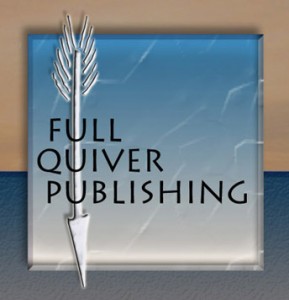Guild Committee News: Changes in the SOA, Inside the CWG, Calls for help and more
This is going to be a year of change for the committees of the Guild—a time to get a little better organized and get some ideas firmed up in order to be able to progress more smoothly in the future. As many of our volunteers know, we have a habit of getting very excited about a project, going into it full-steam ahead, then stopping to think, “Maybe if we…” So, in that vein, let me introduce to you some changes that are going to help make our projects even more awesome.
Catholic Writers Conference Online: Registration ends Feb 29! http://catholicwritersconference.com. Also, registration for presenters ends Feb 29. Sign up at http://www.surveymonkey.com/s/SXJVLJW
Seal of Approval: The Guild reviews books for Catholic content and minimum editorial quality, and provides a “Seal of Approval” to those that qualify. This is a signal to bookstores (Catholic ones in particular) that the book would make a good addition to their inventory.
Many of you help with the wonderful project, and many of you are submitting your books to it. This is a project that goes beyond the Guild, serving bookstores and aiding authors. Unfortunately, it’s also our most swamped of projects, with the organizers and readers getting inundated with book requests, some of which (I regret to say) have been so poorly written that the readers have a hard time finishing them. It’s been frustrating for authors, too, when they’ve not gotten replies in a timely manner. For the past year, the committee had been struggling with how to handle the workload and books that don’t meet writing standards. This is what they’ve come up with:
* We will have a quarterly system for submissions and evaluations, where we take applications for one month a quarter, with reports at the end of the quarter. You can see the schedule on the application at https://docs.google.com/spreadsheet/viewform?formkey=dEdKWWZhOFAyREh0SVZXWF9RcTJnMlE6MQ, and we’ll be posting it to the blog as well.
* Readers may reject a book after three chapters if it clearly does not meet guidelines. We trust our readers to give every benefit of a doubt, but no longer require them to read an entire book. There are still provisions for doubts to be sent to our resident experts as well.
* Books rejected for writing quality can only resubmit if they have been professionally edited, and proof of professional editing is provided. This prevents our committee and readers from dealing with books that get only cursory changes. We are making a database of editors should authors request it, but make no recommendations. We’ve had to do this because some books are coming back with cursory edits that are addressing a few details but not significantly improving the overall quality.
–If you would like to be on the database as an editor, please fill out the survey at http://www.surveymonkey.com/s/RGZBXKV. We are not requiring editors be Catholic to be on the list, but they must support Catholic works.
Inside the CWG: Thanks to everyone who filled out the survey about our internal newsletter. Maria Rivera has used this to make a few changes. The newsletter will be a little shorter, as she rotates through topics, and will emphasize areas readers said interest them the most. She is still looking for members to contribute. Please go to the forum at http://catholicwritersguild.com/index.php?name=Forums&file=viewforum&f=66 for more information. This is for paying CWG members only.
Membership Committee: Mike Hays, our membership coordinator, sure could use someone to help him with the membership database. If you know Excel and can spare an hour a month, contact me at karina(at)fabianspace.com, and I’ll get you connected.
Now, the sad news is that because of several circumstances, we are not going to do the Catholic Arts and Letters Award this year. We’re holding off for a year, getting some things figured out, and next year, we’ll allow books from 2011 and 2012 to compete.
I sound like a broken record, I know, but we need some volunteers, especially folks who can step up to lead. Some of us are getting tired! More seriously, a lot of active volunteers have been hit hard with economic troubles and family concerns—and some have had some lovely opportunities take over their time. We could use some new, dedicated folks. Don’t worry—we’ll train you up. Nothing the Guild does is too complex, especially for this intelligent group.
Last Word: The forums! We’d gotten some complaints (justifiably so) that the forums were too tangled and it was hard to find things. We decided simply to archive all the old information and start fresh. We’ve reorganized into what we hope is a simpler format; such as giving each project its own forum. We’ve also made it members-only. Please check it out, make some comments, and help us to get it moving again. It could be a great communication source.




